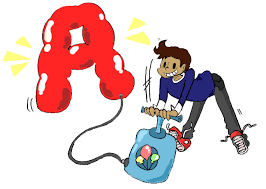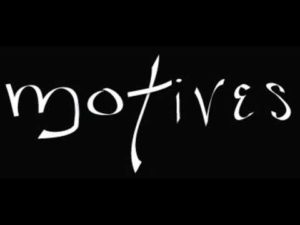by James Burns | Mar 6, 2018 | Bully Proof Classroom, Facebook, James Burns



 “K.” That is my daughter’s response when I send her a request using a text message. I guess it was too much of a strain on her index finger to type the “O”. Adults are also getting into this habit of truncation; things like “you are” are now “ur.” Many years ago, the digital watch came out and all you had to do was view the numbers on the face to be able to tell someone what time it was. That was all well and good, provided you still knew how to tell time by reading the hands on a clock. The same thing is true regarding the invention of calculator. It should only be used for convenience, not to bypass a necessary life skill like multiplication. In this digital age, our students are losing their communication skills. They now interact with the use of Facebook and text messaging. Having an intelligent conversation or writing a “thank you” note is considered old fashioned. Sending an email, a text, or a Facebook post is now the preferred method. What does all this have to do with bullying? Kids today no longer confront in a face to face manner. A healthy confrontation is necessary in life to draw boundaries and express emotions in a constructive way. This is the skill that needs to be taught first, before texting and Facebook-ing. Begin to focus on writing, speaking, and communication as much as possible with your students. Make it a daily exercise. My fear is that if we don’t we will lose our students to the digital abyss.
“K.” That is my daughter’s response when I send her a request using a text message. I guess it was too much of a strain on her index finger to type the “O”. Adults are also getting into this habit of truncation; things like “you are” are now “ur.” Many years ago, the digital watch came out and all you had to do was view the numbers on the face to be able to tell someone what time it was. That was all well and good, provided you still knew how to tell time by reading the hands on a clock. The same thing is true regarding the invention of calculator. It should only be used for convenience, not to bypass a necessary life skill like multiplication. In this digital age, our students are losing their communication skills. They now interact with the use of Facebook and text messaging. Having an intelligent conversation or writing a “thank you” note is considered old fashioned. Sending an email, a text, or a Facebook post is now the preferred method. What does all this have to do with bullying? Kids today no longer confront in a face to face manner. A healthy confrontation is necessary in life to draw boundaries and express emotions in a constructive way. This is the skill that needs to be taught first, before texting and Facebook-ing. Begin to focus on writing, speaking, and communication as much as possible with your students. Make it a daily exercise. My fear is that if we don’t we will lose our students to the digital abyss.
[ecwid widgets=”productbrowser search categories” default_category_id=”0″ default_product_id=”0″ minicart_layout=”MiniAttachToProductBrowser”]
by James Burns | Feb 28, 2018 | Bully Proof Classroom, James Burns, Uncategorized

Too often teachers award a grade of an “A” or a “B” to a student, when in reality the student doesn’t know the material and a more realistic grade would be a “C” or even a “D.” Parental or administrative pressure or curriculum timelines can place you in a position of awarding a grade that is not in line with your student’s actual performance or ability. This is more of a problem for the student and the student’s parents than for you. Students who have an inflated view of their own ability move on to the next marking period or the next grade with a lethal combination: an inflated view of their academic ability (overconfidence) and a lack of the prerequisite skills they need to succeed. This cockiness combined with the students perception of their true ability can produce anger-related issues that could translate into bullying behavior. These students ultimately become behavioral and academic problems for another teacher who often will blame you for the problem. Plus, another huge problem that arises is that the student’s parents also develop the same inflated view of their child’s ability. This grade inflation only produces future pain for the student, the parents, any of the student’s future teachers, and maybe even you, down the road.
by James Burns | Feb 26, 2018 | Anti Bullying 101, Bully Proof Classroom, James Burns, Uncategorized

The past is the past, right? Wrong. The past can and will dictate the future if we allow ourselves to be measured based on our failures rather then our successes. Let’s face it. We all have failed or fallen short from time to time. Just because we have failed does not mean we are a failure. It just means we did the best with what we knew at the time. Parents can do this once they take a look at the lifestyle or the behavior of their grown children. If you are a parent, take heart: you did your best with the information you had in the process of raising your children. If you are a teacher and have had your share of problems and headaches and feel like the funds are low and the debts are high, don’t look back. Don’t drive while looking in the rear view mirror; you will hit a future tree. Gandhi once said, “Be the change we wish to see in the world.” What changes do you want? A kinder and gentler place for kids to come, have fun, and learn? Realize that you are the one that has the capacity to facilitate the change. Have you goofed up in the past? So what? The past is the past, so please don’t ever let it remind you of what you are now. Let the past remind you of what the future holds when you finally let go.
by James Burns | Feb 23, 2018 | Anti Bullying Coaching and Resources, Anti Bullying Tips, Bully Proof Classroom, James Burns, Lesson Plans, Motives, Responsibility

Do you ever watch CSI (Crime Seen Investigation)? I do, occasionally. I am at amazed how all of the evidence that is collected can point directly at the suspect in question, but they just can’t seem to figure out a motive. They need the motive to convict the person of the crime. We all know what the motive of a bully is, right? Power. They want to have power and control over a smaller or weaker person. How do you change the motive of a bully? By being the strongest and most influential person in the classroom. That’s right, you, the teacher have this ability. You don’t need to use power; you need to use your influence. When your students realize that you are in charge their motives change from wanting to hurt others, to wanting to help. They have met their match. Remember, it is not about the influence of your power, but rather the power of your influence.
A Unit Plan On Responsibility
by James Burns | Feb 20, 2018 | Bully Proof Classroom, James Burns, Responsible Actions

Actions do speak louder than words, for sure, if you follow the pattern, thoughts lead to words and words translate into action. That is unless, of course, you are a bag of wind and never follow through on anything you say. Kids, though, get placed on the battlefield of the bully/victim dynamic through their words, and get pressured into taking action. Of course, this all starts in their thoughts. The more that gets said, the more action has to be taken. Most of the time, these actions are taken out of impulse, leading to serious problems among bullies, victims, and other students who they are friends with, creating discipline problems for teachers, administration, and the school’s bullying specialist. Always keep your hand on the pulse of your classroom, and your school, and listen for threatening words that you know could lead to a bullying event. At this point, the child’s or teen’s thoughts have escaped the confines of his secret life and have now become public. STOP HIM NOW, before you have a bigger problem to deal with.
Visit My Store
by James Burns | Feb 19, 2018 | Behavior Management, Bullies, Bully Proof Classroom, Responsible words

I can say what I want to when I want to. I guess that’s freedom of speech. I guess we can post or text anything we want to as well. Kids have been sold this. What kids need to understand is that they can say, post, and text whatever they want, WITH CONSEQUENCES. Just because we are thinking something doesn’t mean we have to say it. Our students need to evaluate their words and what damage those words can do to others. The tongue weighs about 2 ounces; yet, it can control the events of our life. Healthy confrontations, debates, and constructive suggestion are good qualities of communication that we all should develop. Spewing, spreading rumors, gossip, and hurtful statements will only create a school environment that is void of morals, trust, and integrity. Teach your students that if they are going to say something that could prove hurtful, to just wait 30 minutes. This wait-time will allow them to evaluate the cost of their words and avoid the guilt that they will experience for hurting another person. We are all just a compilation of what others have said and done to us. Remember, victims suffer because of verbal abuse. Words truly can cut deep into the heart of person.
Visit My Store
 “K.” That is my daughter’s response when I send her a request using a text message. I guess it was too much of a strain on her index finger to type the “O”. Adults are also getting into this habit of truncation; things like “you are” are now “ur.” Many years ago, the digital watch came out and all you had to do was view the numbers on the face to be able to tell someone what time it was. That was all well and good, provided you still knew how to tell time by reading the hands on a clock. The same thing is true regarding the invention of calculator. It should only be used for convenience, not to bypass a necessary life skill like multiplication. In this digital age, our students are losing their communication skills. They now interact with the use of Facebook and text messaging. Having an intelligent conversation or writing a “thank you” note is considered old fashioned. Sending an email, a text, or a Facebook post is now the preferred method. What does all this have to do with bullying? Kids today no longer confront in a face to face manner. A healthy confrontation is necessary in life to draw boundaries and express emotions in a constructive way. This is the skill that needs to be taught first, before texting and Facebook-ing. Begin to focus on writing, speaking, and communication as much as possible with your students. Make it a daily exercise. My fear is that if we don’t we will lose our students to the digital abyss.
“K.” That is my daughter’s response when I send her a request using a text message. I guess it was too much of a strain on her index finger to type the “O”. Adults are also getting into this habit of truncation; things like “you are” are now “ur.” Many years ago, the digital watch came out and all you had to do was view the numbers on the face to be able to tell someone what time it was. That was all well and good, provided you still knew how to tell time by reading the hands on a clock. The same thing is true regarding the invention of calculator. It should only be used for convenience, not to bypass a necessary life skill like multiplication. In this digital age, our students are losing their communication skills. They now interact with the use of Facebook and text messaging. Having an intelligent conversation or writing a “thank you” note is considered old fashioned. Sending an email, a text, or a Facebook post is now the preferred method. What does all this have to do with bullying? Kids today no longer confront in a face to face manner. A healthy confrontation is necessary in life to draw boundaries and express emotions in a constructive way. This is the skill that needs to be taught first, before texting and Facebook-ing. Begin to focus on writing, speaking, and communication as much as possible with your students. Make it a daily exercise. My fear is that if we don’t we will lose our students to the digital abyss.










